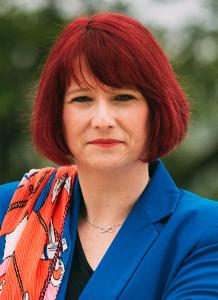Online-Seminar
Details
The Konrad Adenauer Foundation, the Belgrade Open School and the Eduardo Frei Foundation from the Netherlands prepared a series of debates every Tuesday in October and November, as part of the PolitiKAS debate programme: „New normality“ related to the dialogue about life in today's changed context.
The first in a series of debates on the topic "Creating public policies in the local community" was held on October 6, 2020. Biljana Dakić Đorđević, Executive Director of the Trag Foundation, and her interlocutor Vladimir M. Pavlović, Public Policy Advisor at the Belgrade Open School, shared their experience. The mayor of the municipality of Stari grad, Radoslav Marjanović, was prevented from participating in the debate.
Are citizens involved in decision-making processes and to what extent? How should decisions be made about spending local government resources - by referendum or public opinion polls? What are the recommendations for improving the process of creating public policies in the local community? These are just some of the issues that the participants in the debate discussed.
What are the necessary preconditions for creating successful public policies?
Speaking about the creation of public policies in the local community in the context of Serbia's European integration, it was pointed out that "citizens should know that democracy is" the only game in the city "and that there are clearly defined rules of the game that respect the rule of law and human rights and freedoms, which take into account the transparency of the work of institutions, their responsibility and, above all, the promotion and encouragement of civic participation in these processes. " In addition, "it is necessary to establish certain standards and norms that can ensure and protect the quality of life in these communities, such as the protection of public resources, the issue of support for economic activities in local communities, the issue of human security and safety, etc."
"Establishing and strengthening trust between government bodies and citizens is the basis on which every democratic society rests, and which is deeply disturbed in different ways and at different levels in our country," Biljana Dakić Đorđević pointed out. "Criticism coming from citizens should not be understood as hostile, but should open space for cooperation between local self-government and civil society organizations, because only through joint initiation of topics and through multisectoral cooperation, can concrete things be generated which citizens and local communities need them, "added Biljana Dakic Djordjevic.In addition to trust, education is of great importance. Local self-government must educate citizens and other actors outside the system of local self-government and that this process should be bothsided," said Vladimir M. Pavlović. "Regardless of the needs of citizens and their rationality, the duty of local self-government is to provide space and develop a two-way relationship so that we as citizens can clearly express our needs, and then through joint cooperation between local self-government and citizens we can define priorities." It is impossible to respond to every need of citizens ", added Vladimir M. Pavlović and concluded that" if the decision-making process is transparent, responsible and inclusive, then there is a division of responsibilities, and the sense of community is much greater."
In addition to trust and education, the key word in the whole process is courage, which lies on politicians who are a part of a system of government that operates on an extremely monolithic system that is very bad when it comes to decision-making at the local level, Pavlovic added, and Biljana Dakic Djordjevic pointed out that "there is also civil responsibility, which directly relies to the issue of legitimacy."
Decentralization and the role of the media
In order for the process of creating public policies at the local level to be as successful as possible, it is necessary to implement decentralization, listen to the specific needs of local communities, because unilateral solutions cannot recognize all the specifics of a diverse society and state like Serbia. A precondition for all of the above is the existence of an open dialogue that takes place continuously and that ensures and encourages the participation of citizens in the public life of the community, using the mechanisms that already exist.
The role of local media is emphasized as very important, in this process, because they serve as kind of translator, reporter and interpreter of what local governments do and how they adopt and implement certain public policies. They also have to inform the public about real needs of citizens and how the implementation of certain policies specifically reflects on those needs.
Example of good practice - Krusevac
Examples of good practice were shared with the participants in the debate by Zoran Tomić, MP of the Serbian Progressive Party from Kruševac. As Tomic stated, a practice has been introduced in Krusevac, within which every third week of the month, 54 local communities submit to the city administration four priorities for the next year, which should be realized. When it comes to planning, the first instance is the councils of local communities, whose members are elected according to a personalized model, and who are the main mediators between the citizens and, in this case, the city administration. Based on the stated needs, an investment plan is created, which always refers to a period of three years with an assessment of how much time and other resources are needed to realize certain needs of citizens.
"Policies as such belong to local communities, not individual parties, and this must be a principle that ensures that if there is a change of government, there is no radical change in certain policies and strategies and the suspension of previous changes and projects that were successful," concluded Biljana Dakic Djordjevic.
For more information on the upcoming PolitiKAS debates, visit our website: www.bos.rs/politikas/




